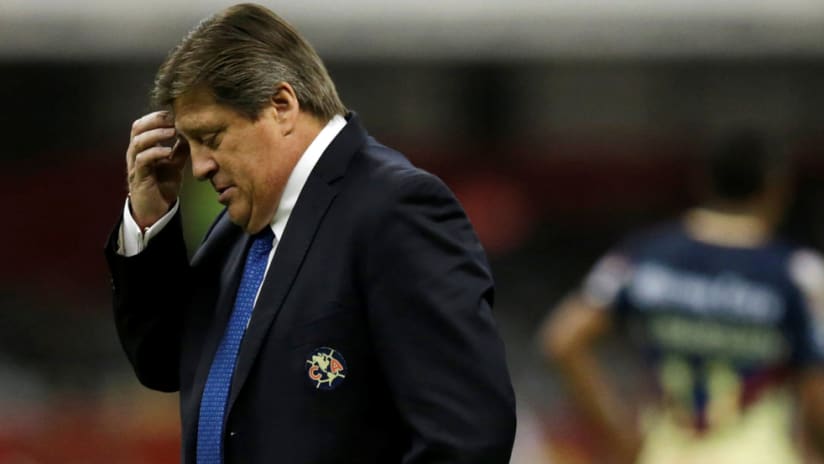When you mess up, you're faced with a choice: Do you apologize? Hope nobody notices? Straight up lie about it? “Hey, look over there!”
Last Wednesday, after Club America lost to Toronto 3-1, manager Miguel "Piojo" Herrera opted for a diverson. Despite his team’s deserved defeat, Herrera remained defiant. In his postgame press conference, Herrera barely acknowledged the loss. Instead, he ranted about:
- The penalty kick called against his team
- Jozy Altidore’s foul count
- The referees making his players change underwear
- His own player getting an unjust yellow card
Herrera talked about everything except the play on the field. So what did everyone have quotes about? Everything except the game. What did most people write about after the game? Everything except the players playing. The conversations revolved around the penalty kick and the Great Underwear Controversy of 2018 instead of the beating Club America took at the hands of the MLS champions.
But that’s exactly what Herrera wanted. He didn’t want anyone to talk about the play on the field, because then we would have been talking about how Club America got outplayed. And then fans would have talked about it, then Herrera’s bosses and players would have heard it. The negativity seeps into the locker room.
Herrera wasn’t making excuses or blowing off steam. He was making a calculated assessment ahead of Tuesday's return leg (10 pm ET | UDN, univisiondeportes.com; TSN1/4; go90.com).
We’ve seen the same in MLS recently from Minnesota captain Francisco Calvo and LAFC manager Bob Bradley. After their respective teams took bad losses, they deflected toward other topics. Calvo called out MLS media outlets and Bradley blamed the refs. They knew exactly what they were doing. Not excuses; calculation. Control the narrative before the narrative controls you.
Deflection isn’t the approach every manager takes. After the Chicago Fire struggled to a 2-2 draw with Portland earlier in the season, Fire head coach Veljko Paunovic told reporters, “In a game where we struggled ... I want to send a message to our fans, it’s the same I said to our players: Get ready and prepare for a tough couple of months, because we are far from the team that we were, and it’s going to take some time to fix it.” Paunovic didn’t try to disguise anything. He sent a clear message.
In the end, that’s what managers do after every game. Whether it’s direct or disguised, well done or not, it’s always an intended message. Media members stick a microphone in managers faces and ask for quotes. We like to think the quotes represent some kind of truth or shed light on the reality we’ve just witnessed. In reality, the manager articulates whatever truth he wants us to behold.
If, as a manager or captain, you aren’t thinking about the message you’re sending, you’re doing something wrong.
Sometimes, as with Paunovic, the coach wants to send a message to his team. Other times, as Bradley and Herrera attempted, they want to set a distraction or give the players a reprieve.
Either way, postgame quotes rarely represent an unbridled truth, rather offering a key opportunity for coaches and players. It’s more fun trying to decipher the underlying message than to judge the words on face value.
And Piojo’s off-field tactics didn’t get past Toronto FC team president Bill Manning, who told the Toronto Sun, “I think [Herrera] is a smart coach. I think he did a good job of deflecting from that game. We came away with a 3-1 victory. We were really happy. He and his team were disappointed. But instead of talking about the game, he talked about the reasons why his players were distracted and the referees and the police.”
Right now, the truth appears to be that Club America’s Piojo Herrera is scared heading into Tuesday's second leg. And that feels pretty good.














